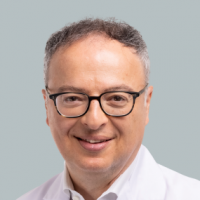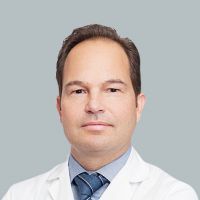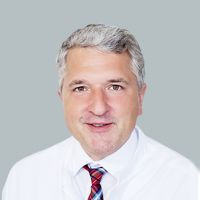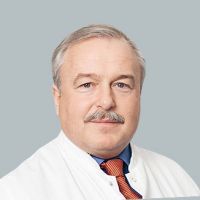Recommended specialists
Article overview
Oncology surgery - Further information
Background information on oncologic surgery
Oncologic surgery is a term that is used particularly in visceral surgery and for malignant diseases of the internal organs. Oncologic surgery concerns a large field of anatomic structures and different types of cancer.
While tumour surgery is very frequently utilised in the area of visceral surgery, it is also not infrequent with regard to prostate cancer, hysterectomy (gynaecological oncology) or tumours in the ENT area. Particularly the demographic trend of society appears to be responsible for the fact that cancer and thus tumour surgery are becoming ever more frequent.
A network of specialists is responsible for oncologic surgery
A tumour can occur in any organ or any body part. There are just as many types of cancer. From skin cancer to cervical cancer and from prostate cancer to lung cancer. Cancers are not limited to one organ and, once they are identified, cannot be treated by a single specialist. A cancer patient is cared for by a network of different experts from various specialised areas. This guarantees the best possible therapy.
Frequently, as well, experts from different hospitals work together, who in so-called tumour conferences or tumour boards discuss the cancer of a patient and decide on the best possible therapy for each specific patient.
The treatment of a patient’s cancer, therefore, involves various specialities of medicine and experts from various areas.
These medical specialists include oncologists, radiologists, radiation therapists, general practitioners and sometimes also experts in oncologic surgery.
As a rule, the general practitioner expresses a suspicion of cancer and refers the patient to a radiologist that can establish a precise diagnosis by way of imaging procedures. Based in this diagnosis further tests, for example taking a tissue sample, are ordered. Only when the exact type of tumour and cancer has been established can the specialists for oncology decide on a course of treatment. The decision is made as to whether oncologic surgery will be applied or whether radiation or chemotherapy would be useful.
When is oncologic surgery indicated?
Oncologic surgery entails very complex interventions and cannot be used for every type of cancer. The decision to carry out an operation depends above all on the type of cancer and the tumour itself. Many tumours already invade surrounding tissue and important structures such as lymph glands or blood vessels and are therefore no longer localised but diffuse. If this is the case, the tumour cannot simply be removed by the oncologic surgeon.
Oncologic surgery as one of the first steps in cancer therapy only makes sense if the tumour is definitely localised and can be removed completely. Then the diseased tissue is treated by chemotherapy or radiation.
If a tumour is inoperable on first diagnosis, oncologic surgical intervention is not indicated. In such a situation chemotherapy or radiation to the tissue involved takes precedence, so that the tumour decreases in size.
The shrunken tumour may then after all be removed operatively.
In some cases, however, a tumour can neither be removed nor treated. Then the patient must be treated palliatively, in order to make his life as comfortable as possible.
In any case, with regard to oncologic surgery the risks and possibilities and the condition of the patient must absolutely be weighed.
In such a complex operation as tumour surgery, the wishes of the patient take very high precedence.
Techniques in oncologic surgery
Not only does the type of tumour determine whether oncologic surgery is possible, but also which technique of tumour surgery can and should be applied. When it comes to oncologic surgery, both conventional and minimally invasive and laparoscopic operations are possible. There are also operative procedures in which modern techniques and tools of medical technology can be used.
This includes fluorescence-supported tumour surgery and ‘cooking’ the tissue by microwaves. There is also HIPEC, hyperthermic intraperitoneal chemotherapy. Classic tools for oncologic surgery also include magnifying spectacles or a head lamp.
Oncological surgery
Surgery for cancer disease uses different techniques depending on the tumour and type of cancer, but it is always very complex. Not only must experts from various professional specialities work in close cooperation but the diseased tissue must also be removed entirely if possible, while the healthy tissue must be spared.
In order to achieve this goal, minimally invasive or laparoscopic removal of the tumour is optimal. However, this technique of oncologic surgery cannot be used in all cases of cancer.
In stomach cancer, for example, in approximately 75 percent of all cases the complete removal of the stomach is necessary. This requires opening the abdominal cavity. Malignant tumours, too, of the oesophagus (oesophageal cancer) require the removal of the oesophagus and therefore the opening of the chest and abdomen. In addition, in oncologic surgical procedures the adjacent lymph glands must also often be removed.
A minimally invasive operation in terms of oncologic surgery is, for example, partial pancreatic resection for pancreatic cancer. In this situation the diseased part of the pancreas can be removed during a laparoscopic procedure.
The Da Vinci prostatectomy for prostate cancer is also a minimally invasive procedure that can be used for prostate cancer as oncologic surgery.
Specialists in neurosurgery for the removal of brain tumours, for example, use tools for oncologic surgery, such as for example magnifying spectacles and fluorescence-supported tumour surgery. In order to achieve fluorescence of the tissue and make the area to be operated on easier to see, the relevant patient takes a preparation in table form prior to surgery. After this is swallowed it marks the tissue through fluorescence.
Measures after oncologic surgery
If a procedure of oncologic surgery was successful and a tumour was removed, other measures against cancer commence. These include, for example, chemotherapy or radiation, in order to cure or prevent the disease definitively.
Some procedures of oncologic surgery are radical and leave a visible change in the body behind. This is the case, for example, after mastectomy, the removal of the male or female breast. After such a procedure of tumour surgery so-called reconstructive surgery is used.
This can also be considered along with plastic and aesthetic surgery, but in any case after mastectomy serves to restore the female breast in order not to compromise the appearance of a woman.
If reconstruction is not necessary after oncologic surgery, there are still measures that become necessary after any tumour surgery and should be borne in mind by the patient.
This includes regular follow-up through monitoring blood values and regular radiologic examinations of the body part involved. In this way even the smallest changes can be identified and measures taken.
In addition, after successful initial treatment against cancer the patient should change his or her lifestyle to a healthy one.























